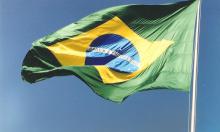Elections leave Serbia without ruling party
Serbs scattered their votes among 20 political parties in parliamentary elections Sunday, leaving no group with enough power to rule alone, according to partial returns in a troubled Balkan nation divided over Western-style reforms and the future of Kosovo.

The vote was the first since Serbia became independent last year with the end to its union with Montenegro, its last partner from the former Yugoslav federation. Soon after the vote, the U.N. was expected to propose a plan for the future of Serbia's breakaway Kosovo province.
Voters chose from parties ranging from ultranationalists and conservatives to pro-Western reformists and liberals. Parties needed a minimum 5 percent of the total vote to earn a place in the 250-member parliament.
Turnout was 62 percent, the state electoral commission said, indicating strong interest among the 6.6 million-member electorate.
Challenges facing the next parliament and government include Western demands for the arrest of war crimes fugitive Ratko Mladic and the dispute over Kosovo, where a predominantly ethnic Albanian population seeks independence over the strong opposition of most Serbs.
According to CeSID, an independent Serbian polling group, the nationalist Serbian Radical Party loyal to late ex-leader Slobodan Milosevic led with 28.7 percent of the vote. But that was not enough for the party to govern alone.
The polling group, citing its own final vote count, said the Western-backed Democratic Party of President Boris Tadic was second with 22.9 percent, and the center-right Popular Coalition led by Prime Minister Vojislav Kostunica had 16.7 percent, the AP reports.
Western capitals worried about Serbia's future course could take heart in the fact the pro-Western opposition Democratic Party of President Boris Tadic nearly doubled its share of the vote, at 22 per cent.
The West made clear to Serbs ahead of the election that they should turn their backs on nationalism if they hoped to join the European Union and Nato, and make up for a decade of isolation, war and sanctions under late leader Slobodan Milosevic.
Germany and Russia issued statements of encouragement during the day to opposite ends of the political spectrum.
German Chancellor Angela Merkel said she wanted to see "democratic forces" strengthened -- underscoring the West's desire for a constructive approach on the breakaway Kosovo province and the handover of war criminals still at large.
Russian President Vladimir Putin said would oppose independence for Kosovo if Serbia rejected a plan that diplomats say will give self-determination to the province's 90 per cent ethnic Albanian majority.
Russia is considered an ally of fellow Orthodox Christian Serbs, although it has by no means always backed Belgrade, Reuters reports.
Kosovo's Prime Minister, Agim Ceku, has praised Switzerland for supporting the former Serbian province in its push for independence.
He said the Swiss foreign ministry had pledged to help protect members of the ethnic Serb minority in the new state and encourage other countries to recognise an independent Kosovo.
Kosovo's 90 per cent Albanian majority has demanded full independence, while Belgrade favours no more than autonomy, swissinfo.com says.
Source: agencies
Prepared by Alexander Timoshik
Pravda.ru
Subscribe to Pravda.Ru Telegram channel, Facebook, RSS!




